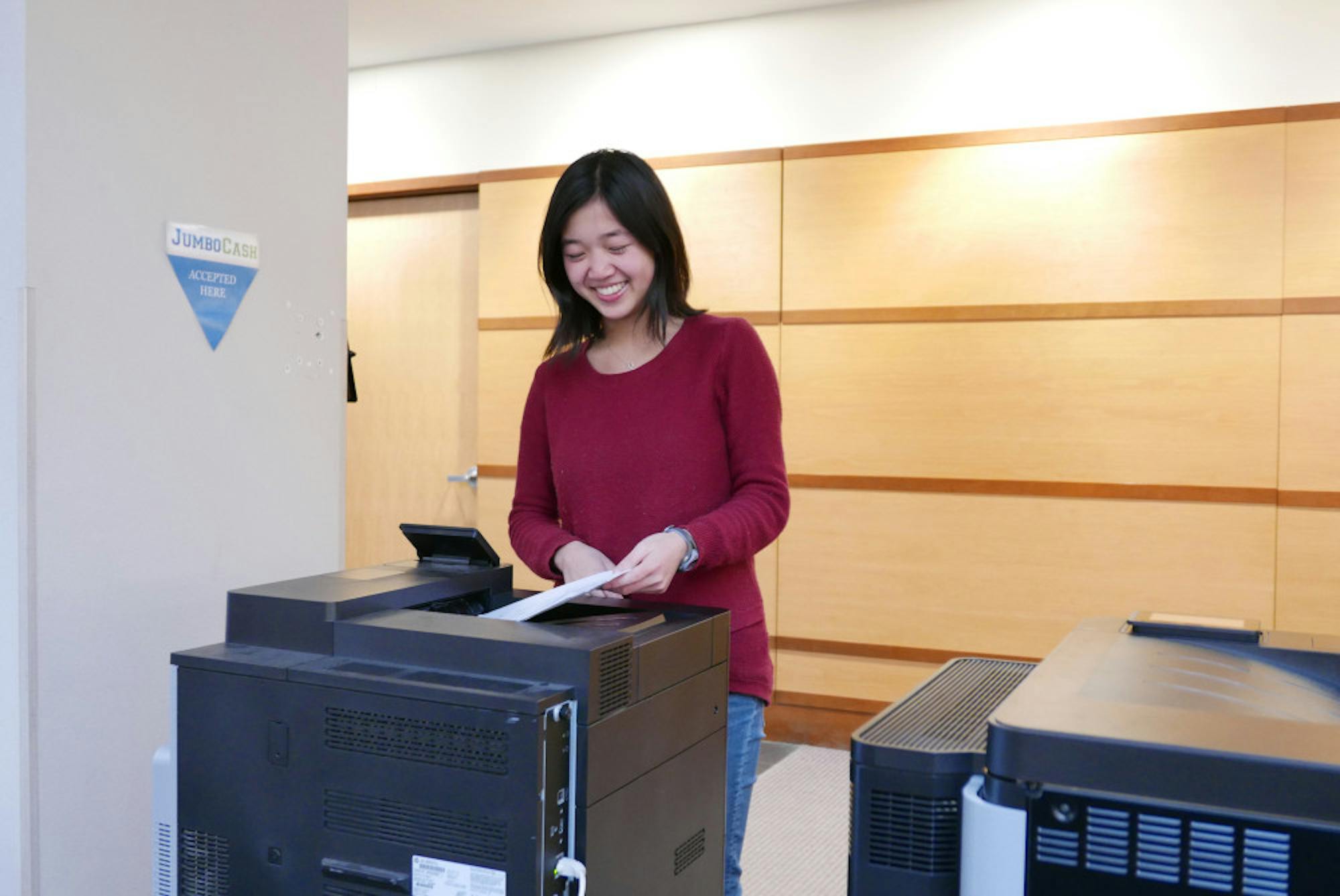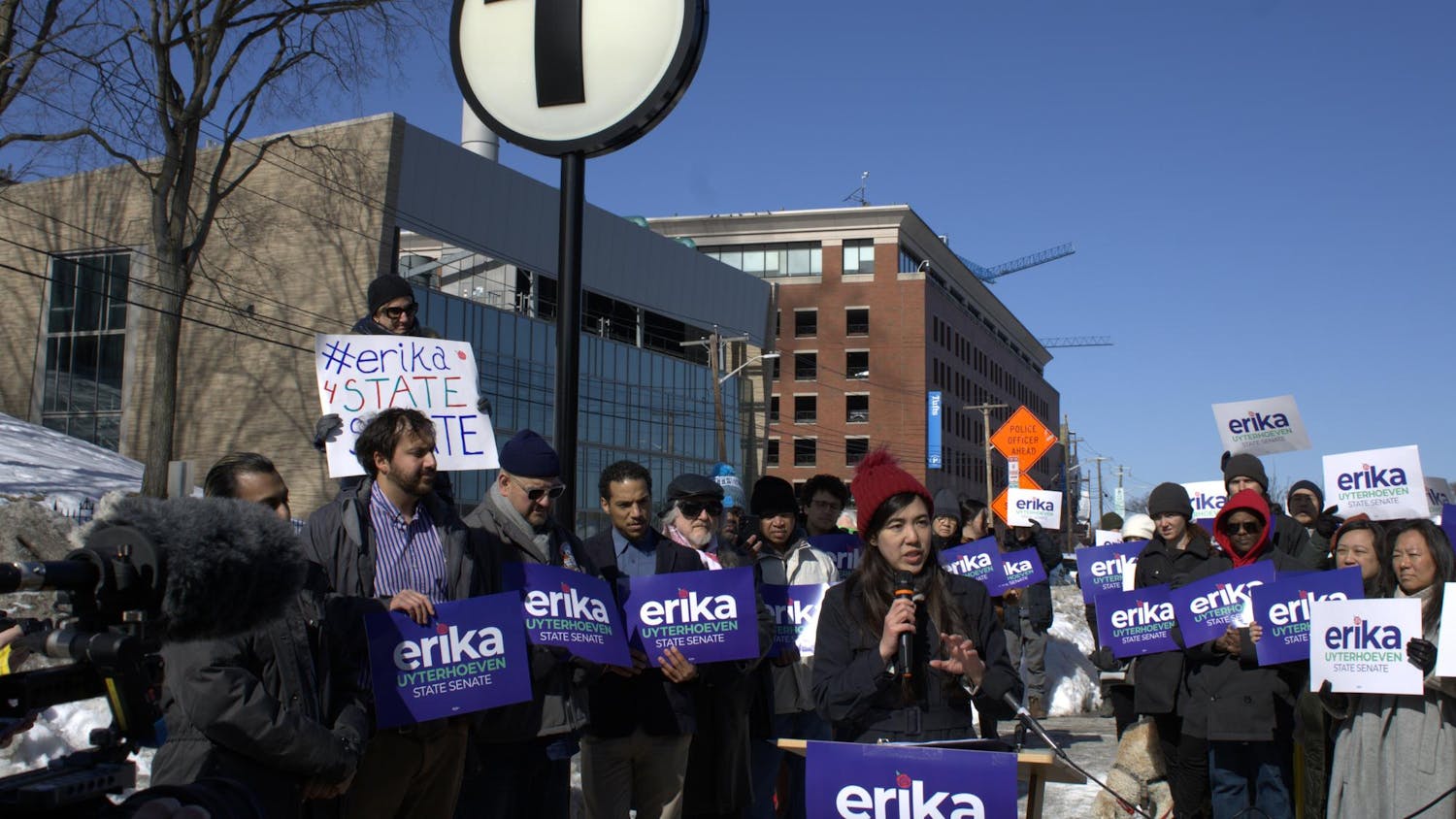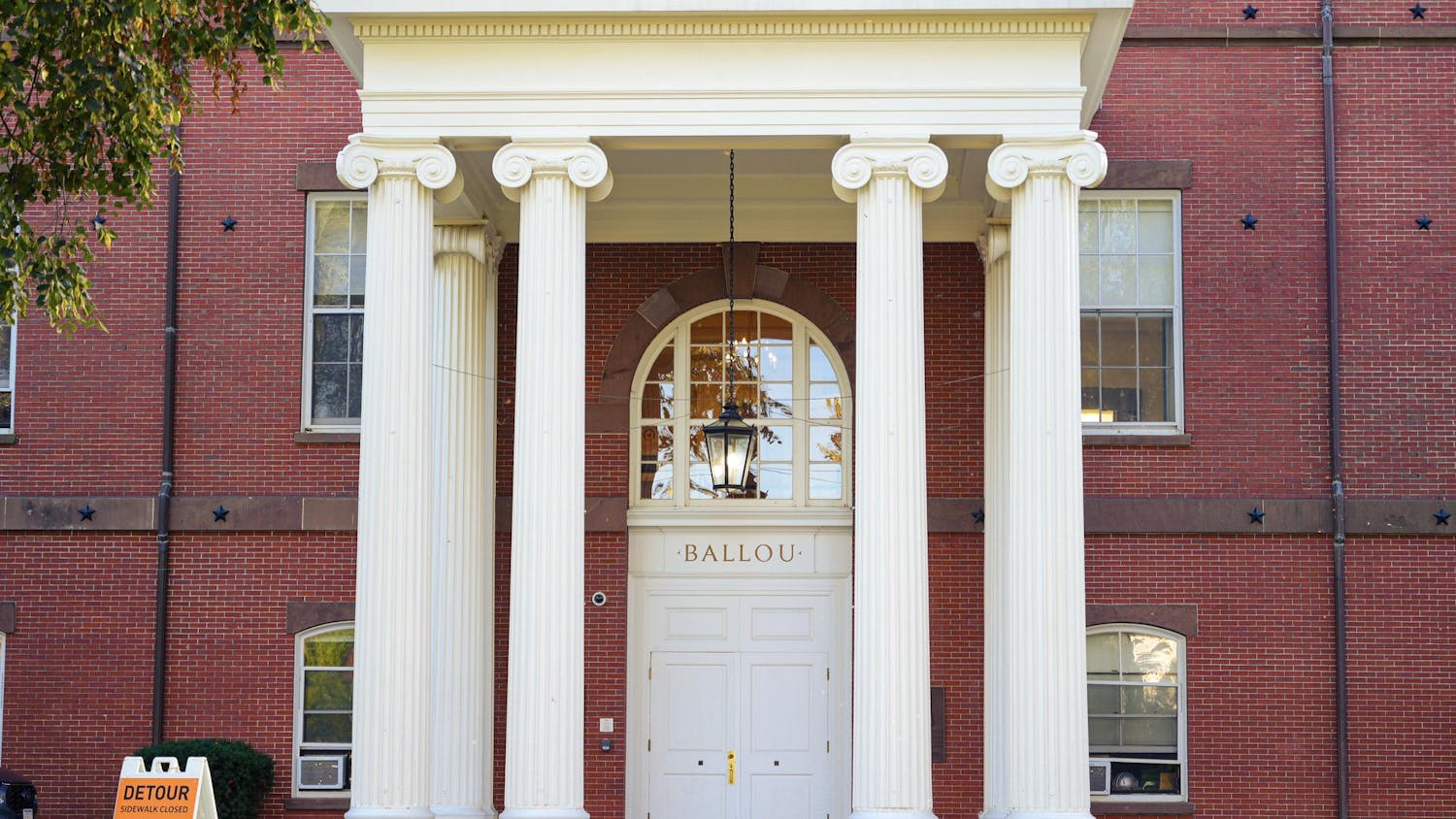Full-time Tufts students, at the beginning of this semester, had $10 allocated to their JumboCash allowance to be used towards printing while part-time students have $5.
The initiative, which began as a Tufts Community Union (TCU) Senate resolution passed in the spring semester of 2016, was based on the fact that printing for classes can represent a financial burden on students, according to the resolution.
Last year, TCU Senator Jacqueline Chen, a sophomore, said she and former Senate President Brian Tesser looked at other universities that provide printing stipends to determine the amount that students should be granted. The resolution lists Columbia University, Brown University and Duke University as a few other schools that offer stipends.
Chen said Senate consulted with the Tisch Print/Copy Contract Team to decide on a stipend amount, after which the initiative received funding.
“We came up with the amount of the subsidy based on our history of ... printing activity, such as the number of pages printed in a typical year," Dorothy Meaney, the associate director of Tisch Library, said.
Chen added that Senate took environmental concerns into account by proposing a printing stipend that would help to limit the number of pages that are printed, rather than simply offering free printing.
According to Meaney, Tisch Library and Tufts Technology Services (TTS) began considering the proposal after students, as well as TCU Senate, brought the issue to their attention. In addition, representatives of TTS, Tufts Libraries, Tufts Dining and Tufts Purchasing weighed the possibility of subsidized printing in a survey last February, according to a Feb. 26 Daily article.
“We did a survey in the middle of last year, not only about the cost of printing but other features offered, and we took the student responses into account," she said. “It gave us a better understanding of what students think on topics like how much printing was required in the year."
“We have gotten a really good response from the medical students on the Boston campus," Meaney said.
Following responses from the student survey, Meaney added that Tisch Library is also considering other printing offerings that would increase efficiency. One of those proposals is mobile printing, which would allow students to print campus papers more easily from mobile devices.
Ultimately, Chen believes that the printing stipends are important because of the amount of money that students frequently have to spend to print class documents.
“I definitely noticed last year that I had to print a lot of readings for classes, in which the readings were mandatory and laptops were not allowed in class," Chen said. "The actual money required to print, by the end of semester, is a financial burden upon students that should be covered by the university, for the students.”
The initiative, which began as a Tufts Community Union (TCU) Senate resolution passed in the spring semester of 2016, was based on the fact that printing for classes can represent a financial burden on students, according to the resolution.
Last year, TCU Senator Jacqueline Chen, a sophomore, said she and former Senate President Brian Tesser looked at other universities that provide printing stipends to determine the amount that students should be granted. The resolution lists Columbia University, Brown University and Duke University as a few other schools that offer stipends.
Chen said Senate consulted with the Tisch Print/Copy Contract Team to decide on a stipend amount, after which the initiative received funding.
“We came up with the amount of the subsidy based on our history of ... printing activity, such as the number of pages printed in a typical year," Dorothy Meaney, the associate director of Tisch Library, said.
Chen added that Senate took environmental concerns into account by proposing a printing stipend that would help to limit the number of pages that are printed, rather than simply offering free printing.
According to Meaney, Tisch Library and Tufts Technology Services (TTS) began considering the proposal after students, as well as TCU Senate, brought the issue to their attention. In addition, representatives of TTS, Tufts Libraries, Tufts Dining and Tufts Purchasing weighed the possibility of subsidized printing in a survey last February, according to a Feb. 26 Daily article.
“We did a survey in the middle of last year, not only about the cost of printing but other features offered, and we took the student responses into account," she said. “It gave us a better understanding of what students think on topics like how much printing was required in the year."
Meaney said that it took a couple of months to develop the project, but the print team, with aid from Tufts Dining, was able to implement the policy just before classes started in January. The money should show up on each student’s JumboCash account, designated specifically for printing purposes so that students cannot use it for other items, Meaney said.
Rick Heckbert, senior technical analyst for TTS, added that the printing allowance is available on all Tufts campuses.“We have gotten a really good response from the medical students on the Boston campus," Meaney said.
Following responses from the student survey, Meaney added that Tisch Library is also considering other printing offerings that would increase efficiency. One of those proposals is mobile printing, which would allow students to print campus papers more easily from mobile devices.
Ultimately, Chen believes that the printing stipends are important because of the amount of money that students frequently have to spend to print class documents.
“I definitely noticed last year that I had to print a lot of readings for classes, in which the readings were mandatory and laptops were not allowed in class," Chen said. "The actual money required to print, by the end of semester, is a financial burden upon students that should be covered by the university, for the students.”






